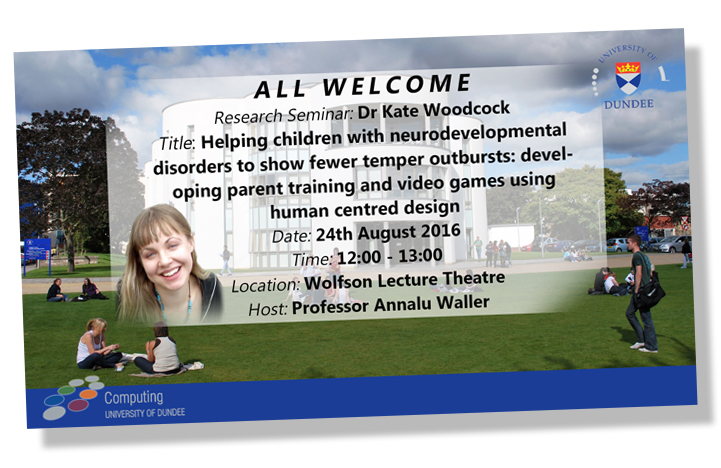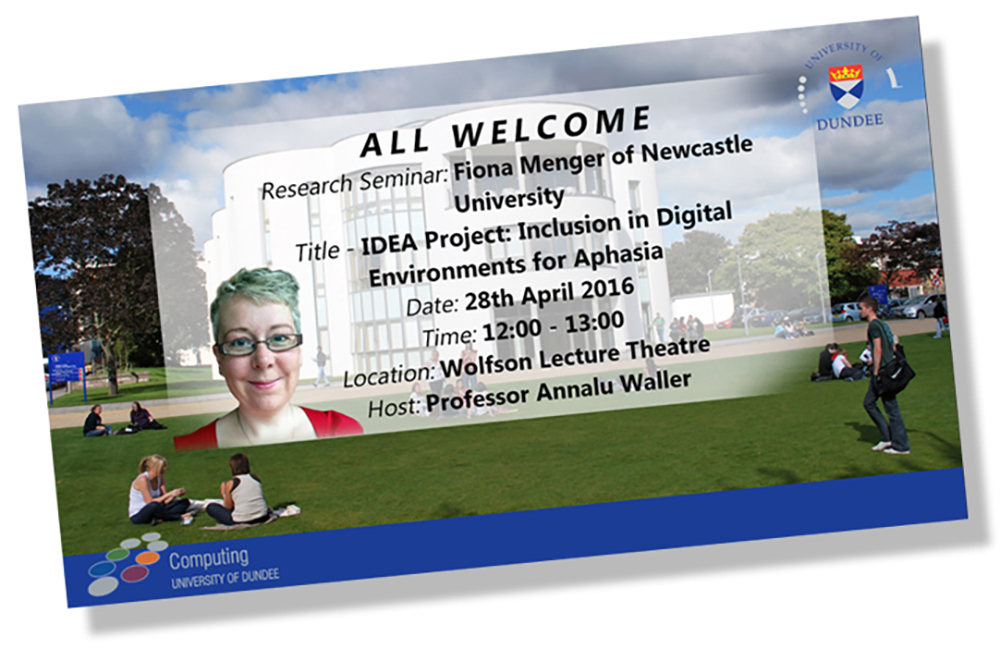![]() A £1 million research project that aims to change dramatically the way people with no speech and complex disabilities can have a conversation with others has been launched by the Universities of Dundee and Cambridge.
A £1 million research project that aims to change dramatically the way people with no speech and complex disabilities can have a conversation with others has been launched by the Universities of Dundee and Cambridge.
Computer-based systems – called Voice Output Communication Aids (VOCAs) – use word prediction to speed up typing, a feature similar to that commonly found on mobile phones or tablets for texting and emailing.
However, for those with complex disabilities, including for example Professor Stephen Hawking, using typing to communicate can still be extremely slow, as little as 2 words per minute, which makes face-to-face conversation very difficult. Even with an average computer-aided communication rate of about 15 words per minute, conversations do not compare to the 150 words per minute speaking rate of people without a communication impairment.

Continue reading £1 million research project launched by the Universities of Dundee and Cambridge




 The
The